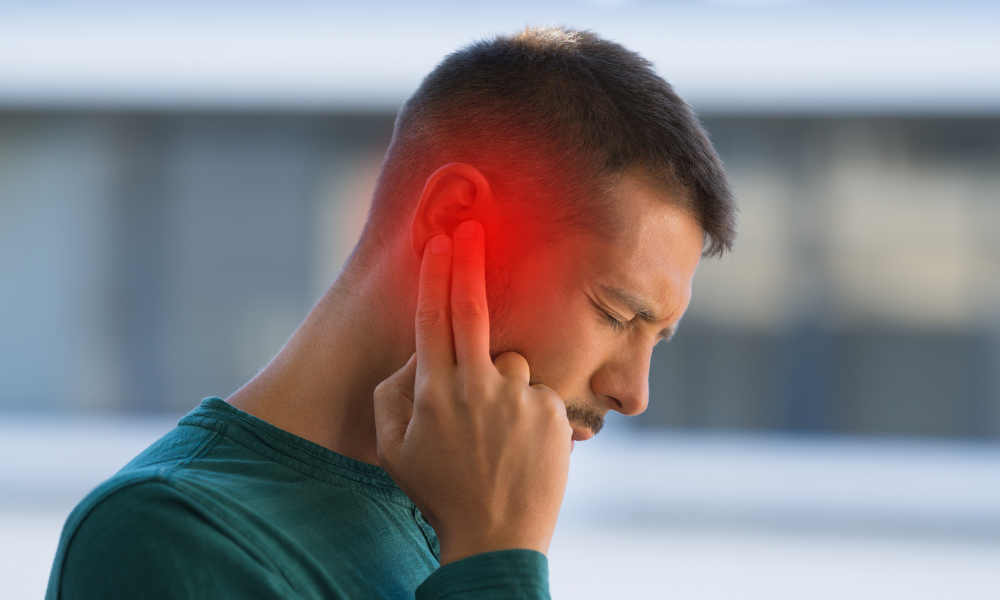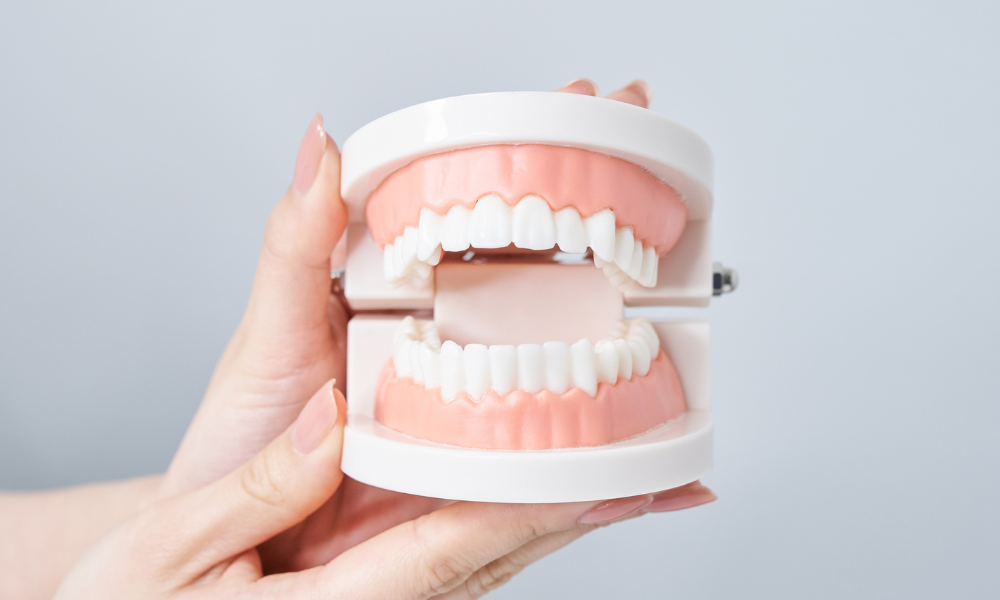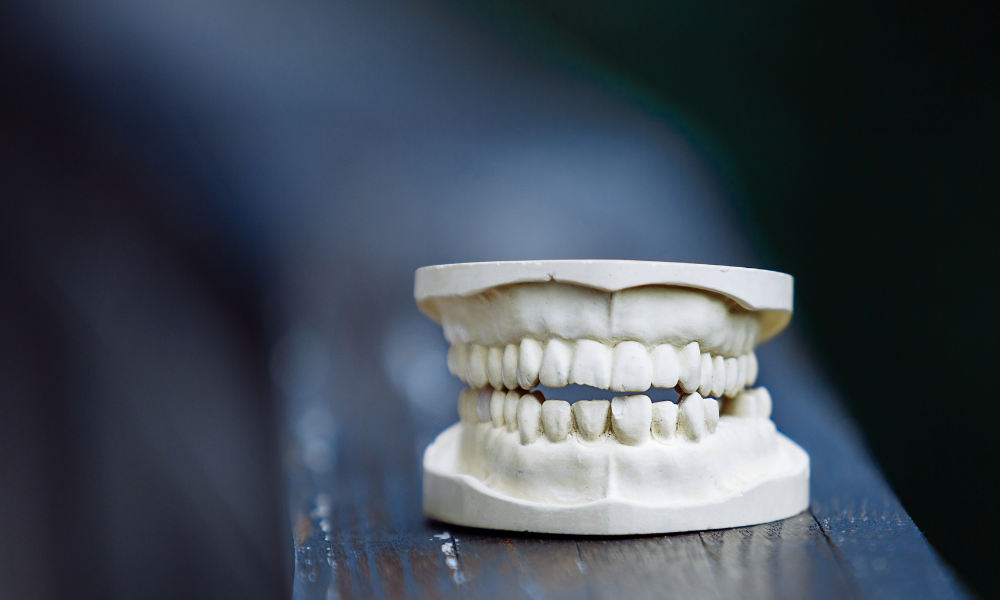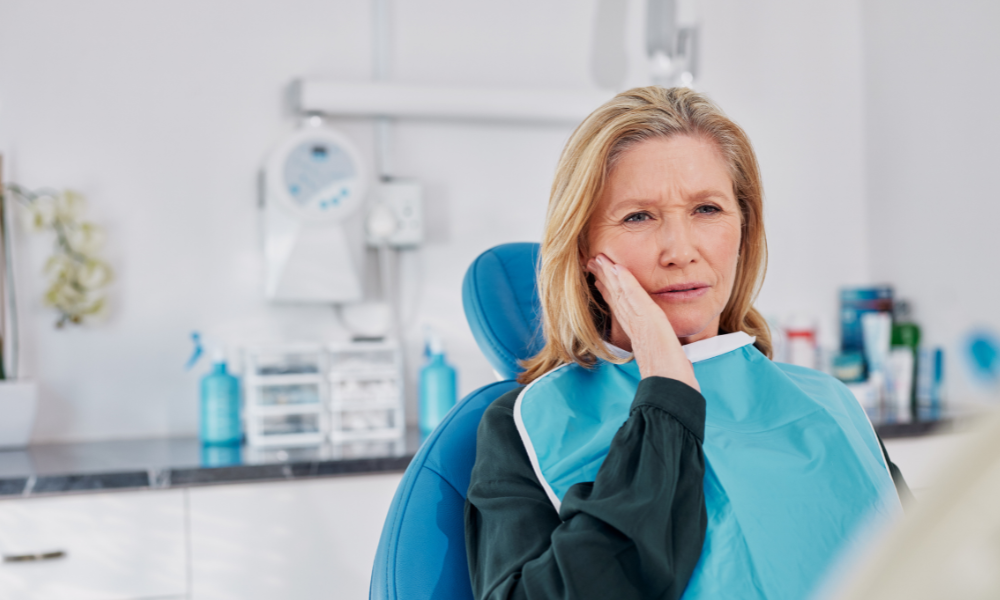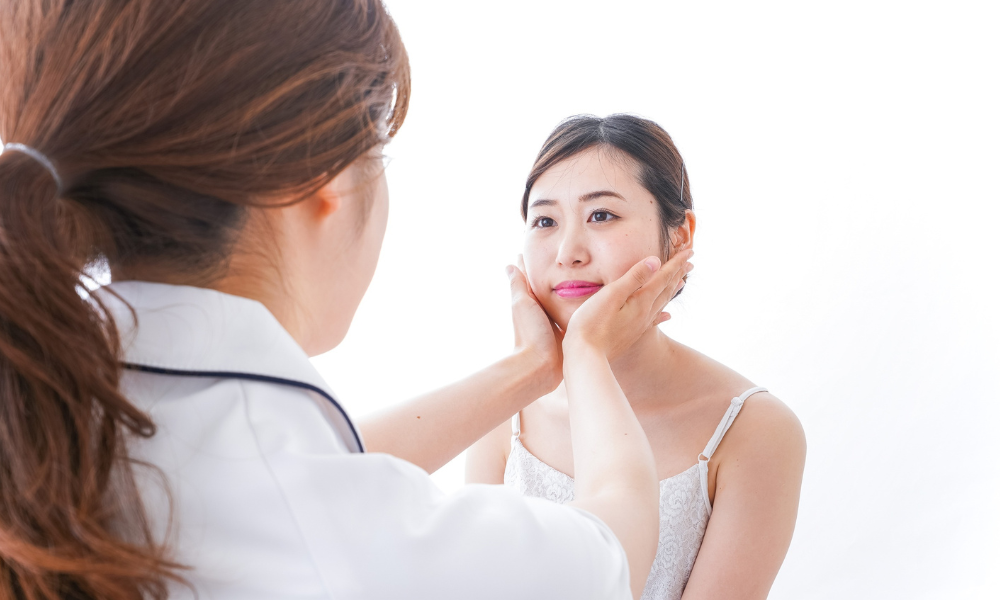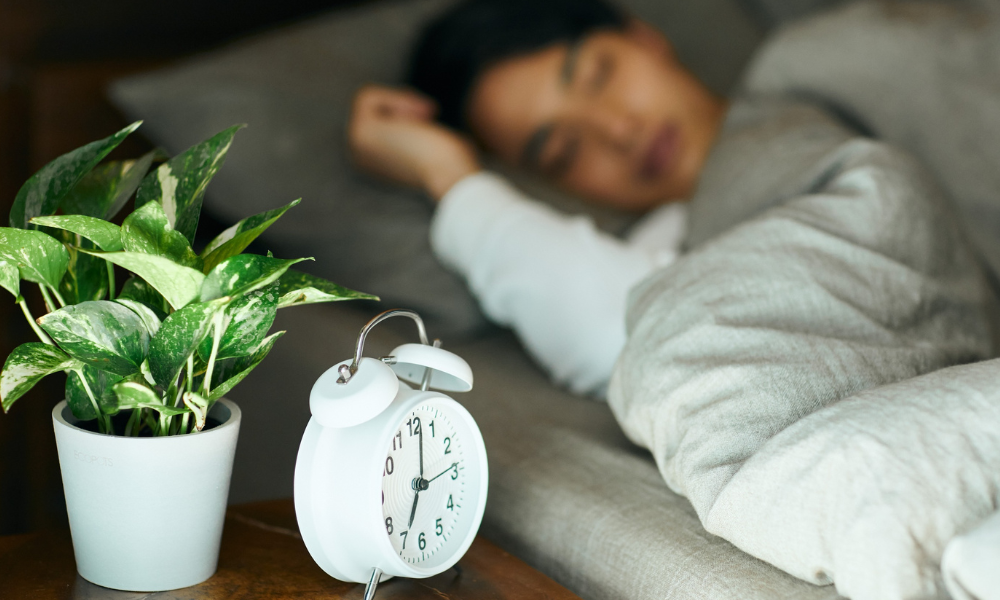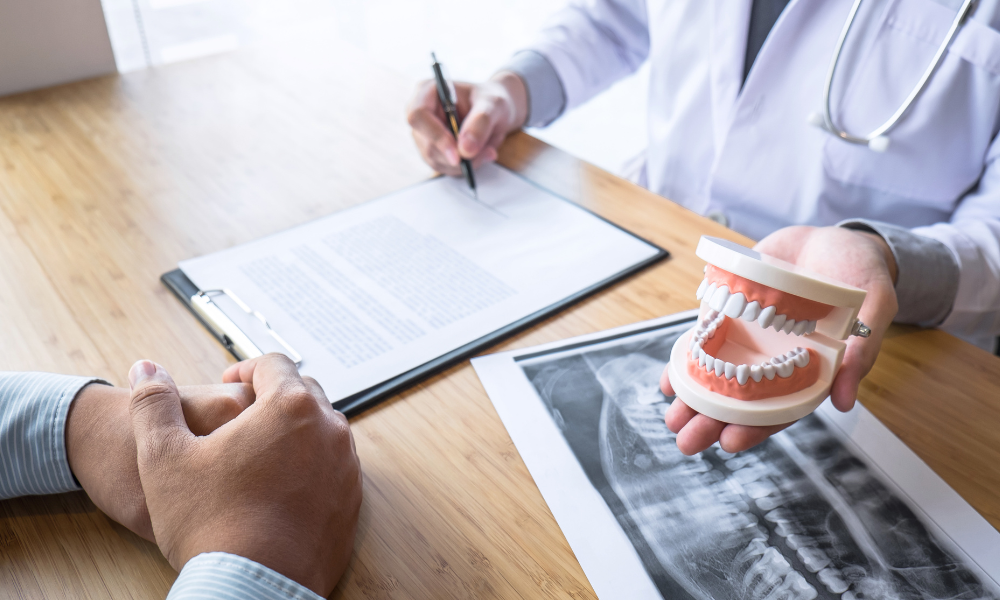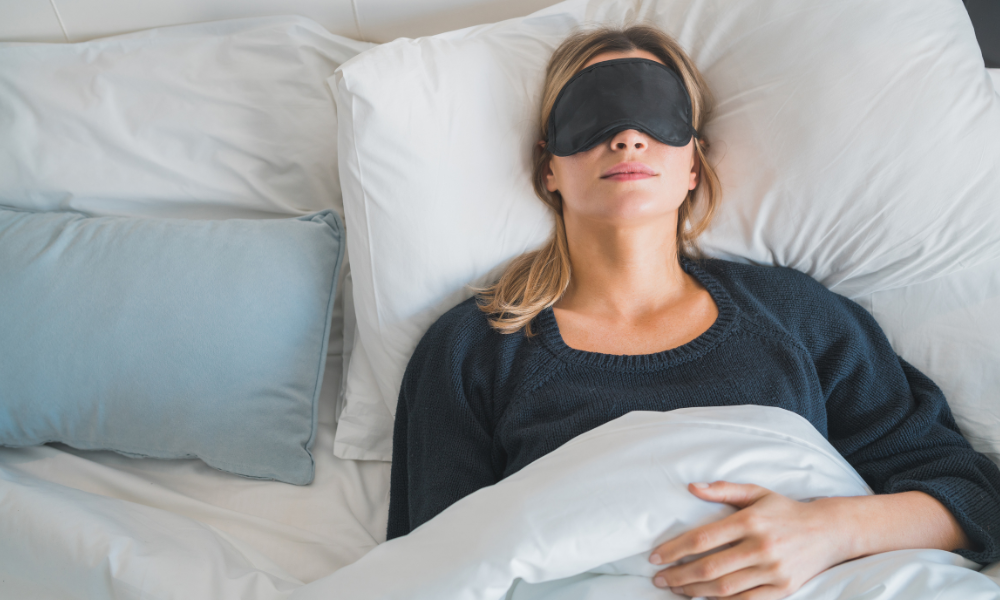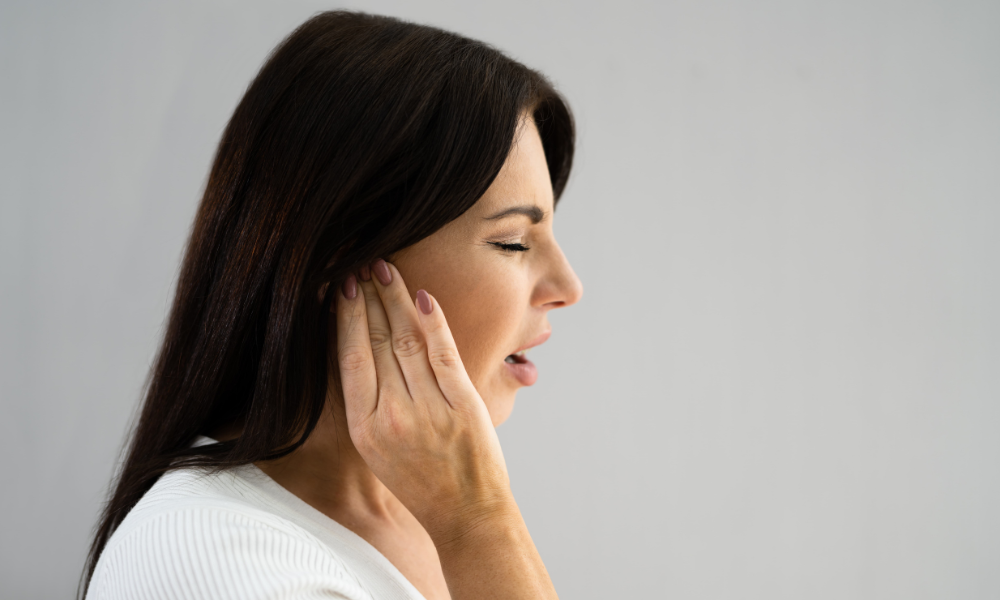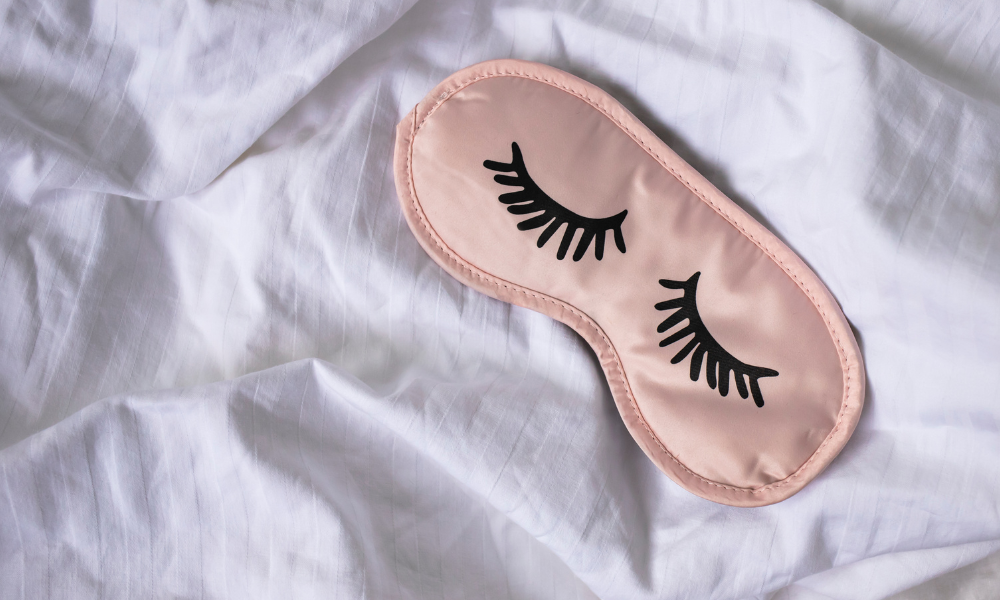
Myofascial pain syndrome (MPS) is a common cause of chronic pain in the orofacial region, often linked to persistent tension and tightness in the muscles and connective tissues.
Understanding the factors that contribute to MPS, its typical symptoms, and available treatment options can help you better manage this often debilitating condition and find relief from persistent orofacial discomfort. In this article, we aim to provide you with a comprehensive understanding of orofacial myofascial pain syndrome, allowing you to make informed decisions about your health and treatment options.
Myofascial pain syndrome is a chronic pain disorder that affects the myofascial tissues, including muscles and connective fascia. It is characterized by the presence of trigger points, which are localized, hypersensitive spots within the muscle fibers. When pressure is applied to these trigger points, they can cause referred pain or sensations in other areas of the body. In the case of orofacial myofascial pain syndrome, the trigger points are located within the muscles that control jaw movement, the head, and the neck, leading to pain and discomfort in these regions.
Several factors can contribute to the development of orofacial myofascial pain syndrome. Common causes include muscle overuse or strain, poor posture, emotional stress, and clenching or grinding of the teeth, also known as bruxism. Furthermore, individuals with other orofacial pain conditions, such as temporomandibular joint disorder (TMJ/TMD) or trigeminal nerve disorders, may be more susceptible to developing MPS due to the persistent muscle tension and dysfunction associated with these conditions.
The symptoms of orofacial myofascial pain syndrome can vary greatly among individuals but often include localized muscle pain, stiffness, or tightness around the jaw, mouth, head, and neck areas. Additional symptoms may include tension headaches, fatigue, and difficulty opening the mouth fully. These symptoms can be exacerbated by stress, poor posture, or certain activities or movements that put a strain on the affected muscles.
At Columbia TMJ and Pain, Dr. Bloxham is committed to helping individuals with orofacial myofascial pain syndrome find relief from their discomfort through a comprehensive and multidisciplinary approach. Treatment options for MPS may include physical therapy, trigger point therapy, stress management techniques, medications, or oral appliances to address bruxism or TMJ/TMD-related issues.
Stay with us as we explore the complexities of orofacial myofascial pain syndrome and provide insights into the various treatment options available, empowering you to make informed decisions about your health and well-being.
Causes of Orofacial Myofascial Pain Syndrome
- Muscle Overuse or Strain
Frequent or excessive use of the muscles in the orofacial region, such as excessive gum chewing or playing a musical instrument that requires vigorous jaw movements, can lead to muscle strain and, eventually myofascial pain syndrome. Over time, the muscle fibers become overloaded and sensitive, developing painful trigger points. - Poor Posture
Holding an incorrect posture, especially for extended periods, can place undue stress on the muscles of the head, neck, and jaw. This persistent pressure may result in the formation of trigger points and contribute to orofacial myofascial pain syndrome. - Emotional Stress
Chronic stress may cause tension in your orofacial muscles, as these muscles tend to tense up in response to psychological stress. Over time, this constant tension and tightness can lead to the development of MPS. - Bruxism
Clenching or grinding your teeth (bruxism) is another common cause of orofacial myofascial pain syndrome. The repeated stress on the jaw muscles may result in muscle strain, eventually leading to the formation of trigger points and associated pain.
Symptoms of Orofacial Myofascial Pain Syndrome
- Localized Muscle Pain
Individuals with orofacial MPS often experience localized muscle pain in the form of a dull ache. This pain may be felt around the jaw, mouth, head, and neck areas and can be exacerbated by certain movements or activities that involve the affected muscles. - Stiffness or Tightness
Aside from pain, muscle stiffness or tightness is another common symptom of MPS. This stiffness can make it difficult to move your jaw, neck, or head and may lead to decreased function or mobility in these areas. - Tension Headaches
As a result of the muscle tension and trigger points in the orofacial region, individuals with MPS may experience frequent tension headaches, which manifest as a steady, non-pulsating ache on both sides of the head. - Fatigue
Chronic pain, such as that experienced in MPS, can significantly impact your overall quality of life and contribute to feelings of fatigue. Constant muscle tension and pain can be both physically and mentally exhausting.
Treatment Options for Orofacial Myofascial Pain Syndrome
- Physical Therapy
Physical therapy can greatly help alleviate the symptoms of orofacial myofascial pain syndrome. A skilled therapist may employ various techniques, such as myofascial release therapy or muscle stretching exercises, to address the trigger points and muscle tension. Additionally, posture correction exercises can help minimize the stress placed on these muscles and prevent future MPS occurrences. - Trigger Point Therapy
Trigger point therapy focuses on applying targeted pressure to the trigger points, aiming to release muscle tension and reduce pain. This can be performed manually by a therapist or self- administered with the use of therapy tools such as massage balls or foam rollers. - Stress Management Techniques
As stress is a known contributor to orofacial myofascial pain syndrome, it is crucial to find effective ways to manage and alleviate stress. Practicing relaxation techniques like deep breathing exercises, meditation, and yoga can help reduce muscle tension and promote overall pain relief. - Medications
Over-the-counter pain relievers (such as ibuprofen, aspirin, or naproxen) or muscle relaxants can help manage pain and reduce inflammation in individuals with MPS. Topical analgesics, like creams or gels containing menthol or lidocaine, can be applied directly to the affected area for temporary relief. - Oral Appliances
For those who experience MPS due to bruxism or TMJ-related issues, the use of oral appliances, such as night guards or splints, may be beneficial in reducing muscle strain and preventing further damage to the teeth and jaw joint.
Conclusion
Orofacial myofascial pain syndrome can significantly impact one's quality of life, but by understanding its causes, symptoms, and potential treatments, you can find effective ways to manage and alleviate the pain. By working with a skilled
myofascial doctor such as Dr. Bloxham at Columbia TMJ and Pain, you can develop a personalized treatment plan that is tailored to your unique needs and circumstances. With appropriate care and management, it is possible to find relief from orofacial myofascial pain syndrome and improve your overall well-being.
